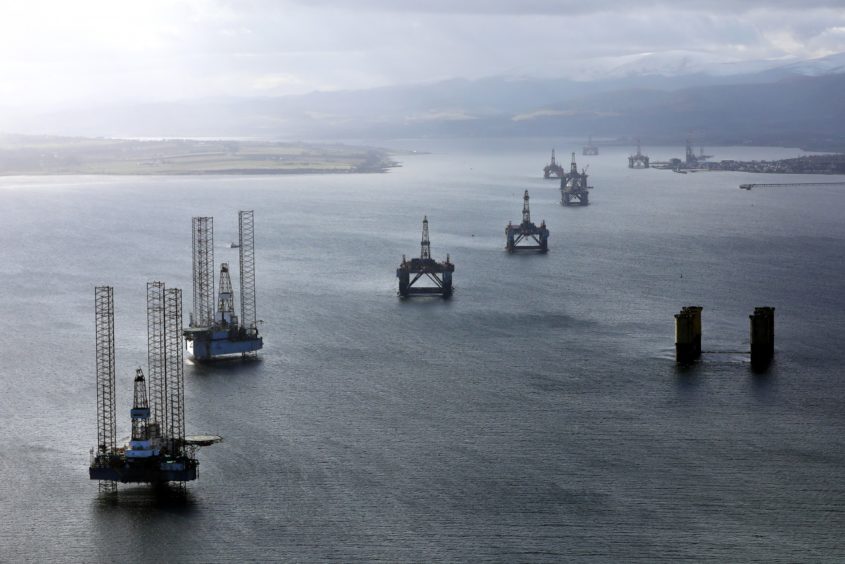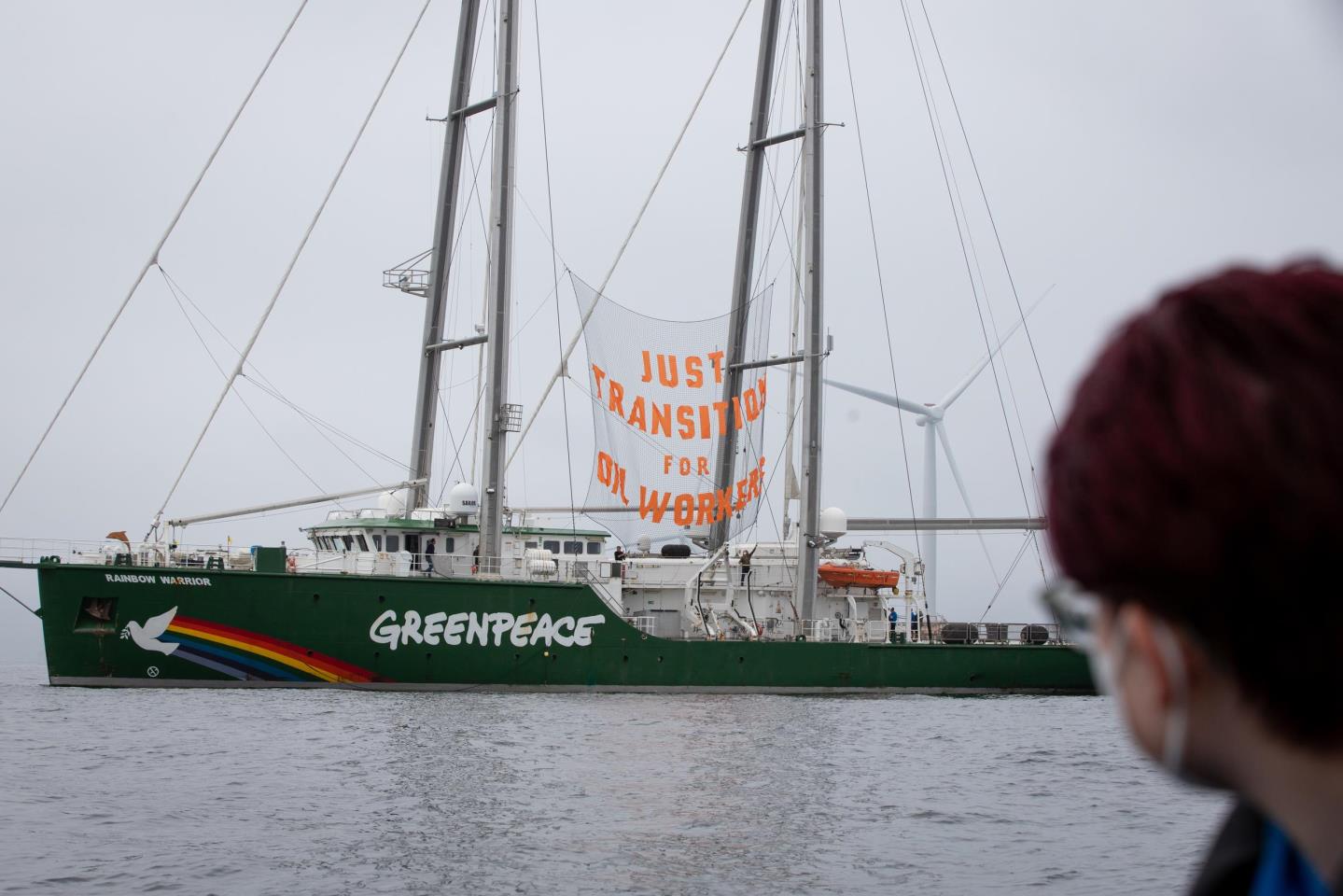
Nearly 35,000 UK jobs supported by the oil and gas industry have been lost in the last year as Covid and volatile prices struck, according to a landmark new report.
In its latest Workforce and Insight review, trade body Oil and Gas UK (OGUK) has set out the “incredibly challenging” events of 2020, calling for government support for “homegrown” energy supply and renewables projects.
The sector has seen the number of direct and indirect jobs which it supports across the country drop from 152,100 in 2019 to 117,400 in 2020, surpassing a warning made last year that around 30,000 jobs could be lost.
OGUK said the majority of these are “indirect” roles supported by the sector across 35 industries such as manufacturing, catering and clothing companies for PPE.
Market intelligence manager Ross Dornan said the figures demonstrate the far-reaching impact of reduced oil and gas spending on the national economy.
He added: “Obviously we’re an industry which has a range of energy hubs and Aberdeen is one, if not the largest, of them.
“Aberdeen has been at the centre of this and we can all feel that living here.”
Jake Molloy, regional organiser of the RMT union, said the figures should act as a “catalyst” for action on the energy transition and “getting projects moving to enable those displaced to move into the renewables sector”.
He added: “The whole north-east region has been impacted and the fact you’ve got so many indirect jobs demonstrates that.
“It ripples right out to other services, be it hospitality, hotels or even taxi drivers. Everybody is feeling it.”
Although not entirely owing to oil and gas, the report highlights that the number of unemployment-related benefit claims made by residents of Aberdeen and Aberdeenshire doubled between February 2020 and 2021, an increase of almost 8,500.
Last year the price of Brent crude oil tumbled 35% as demand reached its lowest levels since 1995, which OGUK cites as the main reason for the losses, with estimates of around £3billion of North Sea spending deferrals which could take up to three years to be recovered.
Covid impact
Covid-19 saw drastic reductions on the number of workers travelling offshore, with 10,400 fewer than 2019 as crews were reduced to “core” personnel only.
Meanwhile the number of EU nationals working offshore in the UK dropped by 27% and non-EU workers reduced by 54%, while the UK workforce dropped 17% by comparison.
OGUK said this could be explained, at least in part, by quarantine rules and travel restrictions arising from the pandemic.
The number of workers on furlough who are part of the industry remains unclear due to supply chain crossover with other areas like manufacturing and construction.
However government stats show 1,100 workers in the “mining, quarrying and utilities” sector remained on the scheme as of the end of May 2021, compared to 15,700 in May 2020.
Future steps
OGUK said that, while it’s important “not to shy away” from the reality of the situation, there are tentative signs of improvement.
The number of workers offshore have now risen to pre-pandemic levels thanks to the vaccine programme and easing of restrictions.
Meanwhile the number of direct and indirect jobs supported by the industry is expected to have risen in 2021 to 118,400, albeit 33,700 fewer than pre-pandemic.
Unite the Union regional organiser John Boland said: “There has been a bit of a pickup with shutdown season and we have seen a bit more confidence now with the oil price going up.
“It’s still disappointing to see that amount of jobs going out the industry, and I wonder if we’ll ever get them back again.”
Mr Boland said some recent headlines pushing for an accelerated end to the industry “probably haven’t helped the situation”.
Industry bosses said the UK relies on oil and gas for 73% of its energy needs and hit out at some groups who “continue to call for a rapid cliff-edge reduction in UK offshore oil and gas production – before alternatives are in place at the required scale”.
Activist group Greenpeace said it “stands in solidarity” with workers who have lost employment, carrying out initiatives such as its “Just Transition Tour” across Scotland.
Campaigner Philip Evans said: “Experts at the International Energy Agency and the IPCC are making clear that we need to end our reliance on fossil fuels, so Greenpeace is campaigning for the government to urgently make a plan for workers to make sure they don’t get left behind.”
However the group said that new projects like Cambo in the West of Shetland “will be of little benefit” and urged Boris Johnson and Nicola Sturgeon to instead ensure investment in renewable energies.
OGUK said a “cliff-edge transition” would “undermine the nascent energy sectors” like carbon capture and storage (CCS) and hydrogen which will require the oil and gas industry’s skills.
It called for support from the UK Government for “homegrown energy and homegrown climate solutions” in line with the recently-signed £16bn North Sea Transition Deal (NSTD) to help secure the future of the industry.
Mr Dornan, of OGUK, added: “The NSTD is really all about recognising that things like CCS and hydrogen, platform electrification are on the agenda of companies but they are developments from 2025-onwards.
“If we can get the frameworks in place quicker, those projects will be advanced and they will provide more transition opportunities for companies and for workers in the shorter-term rather than the medium-term.
“So support from government to advance those is good for new workforce opportunities.”
Recommended for you




 © OGUK
© OGUK © Supplied by Greenpeace
© Supplied by Greenpeace